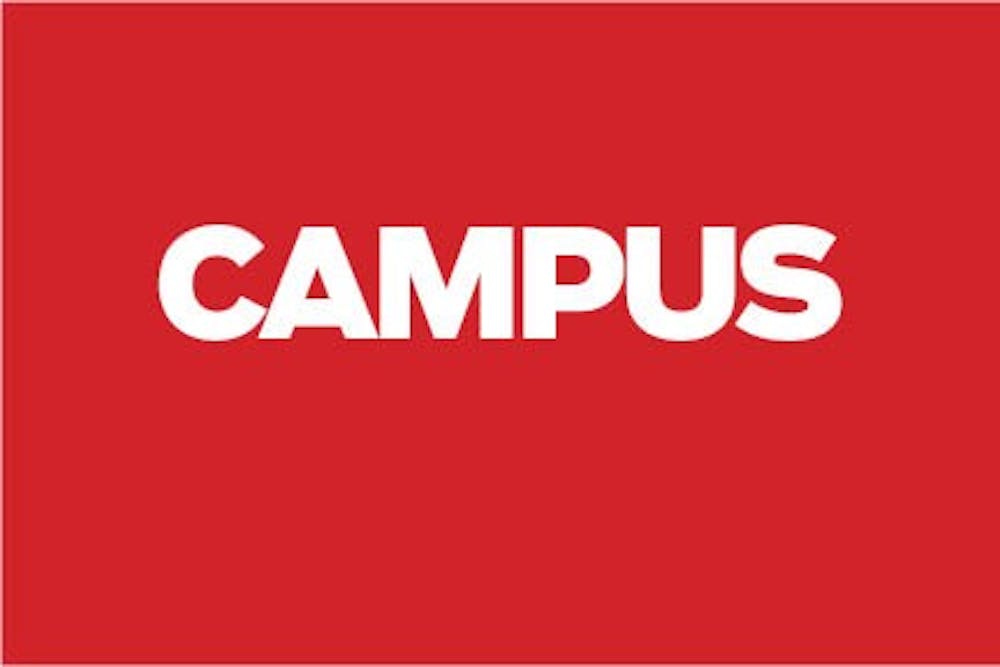Members of the IU Student Association said they knew there would be controversy.
Prior to Tuesday’s meeting, emails about and talk of a proposed change to the election code circulated among members of IUSA.
After 10 pro and con speeches, nine minutes of technical questions and nearly 45 minutes of discussion, it seemed as if the debate still wasn’t over.
Members of Congress, trying to get their final thoughts in, talked over each other.
However, it was time to vote.
This resolution was one of five passed at IUSA Congress’ voting meeting Tuesday.
Congress passed a resolution amending the bylaws in terms of IUSA election ticket definition.
The change made it so tickets cannot be a legal entity operating as a business or nonprofit.
This change came to the election commission’s mind a few months ago after an incident at Ohio State University involved super PACs endorsing tickets.
However, the election commission has recently had to answer advisory opinions regarding noncompete and nondisclosure contracts and their legality.
This can intimidate students who wish to join a ticket for fear of inciting legal action from another ticket.
Because of these issues, the commission thought it best to bring the resolution to Congress now.
With this bill, these types of contracts become illegal for tickets to have since they are not legal entities.
“Basically, it’s kind of a common-sense argument from our point of view in trying to protect the integrity of the election,” Commission Chairman Adam Kehoe said.
Although the bill passed, the change caused much debate among the assembly.
Those opposed to the bill had questions regarding the term “legal entity.” Serving as a substitute for another assembly member, Jack Langston, Accelerate for IUSA vice president of Congress, said all tickets are currently considered legal entities.
Langston said any group that comes together and raises money is considered a legal entity in Indiana. Therefore, he said passing this amendment would disqualify all three tickets running.
“This does not preserve the integrity or the democracy that IUSA has come to represent,” Langston said.
The election commission said unless a ticket is registered with the state as a business or nonprofit organization, the change should not have any effect on the tickets now.
Tickets have never been considered legal entities in the past, so this should not be a large change for this election, said Richard Solomon, ticket liaison for the commission.
Prior to the meeting, Langston requested Vice President of Congress Jalen Watkins send out a response to this resolution explaining why Congress should not vote for it.
The response stated the wording needed clarification so everyone voting could have a better understanding of what it means.
“We feel the implications of it could stretch a lot further,” said Connor Brashear, Accelerate for IUSA president.
The resolution also added tickets are expected to act under all obligations and responsibilities in the Student Life and Learning policies even though they are not considered student organizations.
Congress parliamentarian Naomi Kellogg sponsored a bill calling upon School of Public and Environmental Affairs dean John Graham to increase transparency in regards to a recent grant given to the school by the Charles Koch Foundation.
The resolution called for Graham to release all grant agreements and memoranda of understanding for the Koch Foundation since Jan. 1, 2013.
It also asked Graham to review and update fund development guidelines.
Along with these two stipulations, the resolution called on Graham to decline any future gifts and grants exhibiting “strings attached.”
This resolution stems from a petition created by SPEA students that asked Graham to increase transparency by giving access to all gifts, grants, contracts and agreements between SPEA and private donors.
This bill was brought to Kellogg’s attention by students in the graduate school.
Kellogg said faculty were informed of the grant but not students.
Although this bill only applies to SPEA, Kellogg said she hopes the resolution will be a stepping stone to increasing transparency throughout the entire University.
“It’s kind of the first step in showing administration that students do care about where the money’s coming from,” Kellogg said.






